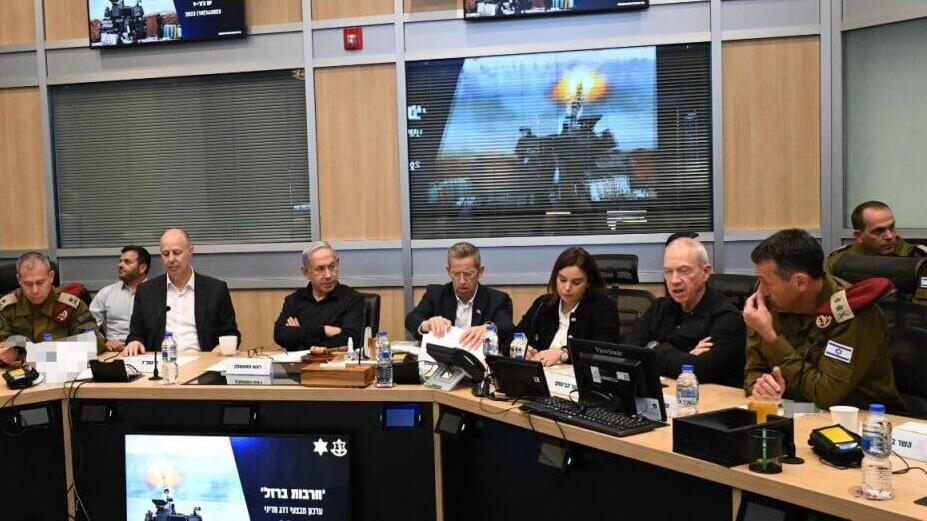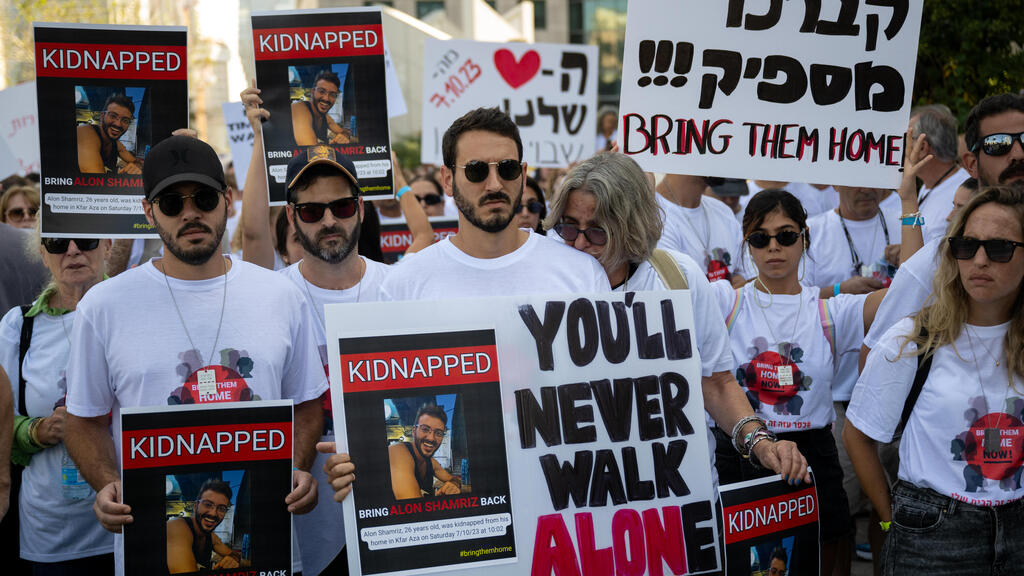Israel's leadership is grappling with a difficult dilemma: Whether to negotiate with Hamas for the release of the 229 kidnapped Israelis, held in Gaza and only then initiate a ground offensive, or to enter the Gaza Strip immediately, and based on its achievements, reach a better deal later.
Read more:
It is impossible for security reasons to disclose who supports which pattern of action, but soon the ultimate decision-makers, especially Prime Minister Benjamin Netanyahu and the few ministers in the war cabinet, will have to decide.
What can be said is that, Israel is obliged, sooner or later, to carry out an extensive ground offensive into the Gaza Strip to end the rule of Hamas and destroy its military capabilities, in order to eliminate the looming threat on civilians and restore normal life in Israel. Both from the official statements and behind-the-scenes discussions, one can infer that a fundamental decision regarding the need for a ground offensive has already been made by consensus among all the relevant political and security actors.
As for Hamas, reports in the Arab and American media suggest that the terror group is demanding three things in exchange for the release of some of the captives, likely including foreign citizens, children, women, and elderly Israelis: fuel (as part of what they call humanitarian aid), a ceasefire, and the release of prisoners held in Israel. The exact number and identities of the captives and prisoners to be released have not been specified yet.
For now, these are fundamental demands conveyed by Qatari and Egyptian mediators on behalf of Hamas. Israel is willing, as a matter of principle, to examine and discuss these demands, and has also communicated this to the mediators. However, it has made it clear that the clauses related to the number of prisoners to be released and the ceasefire, go far beyond what it is willing to agree to.
Nevertheless, the pressing question now is whether to continue delaying the ground incursion to negotiate further or to enter Gaza with full force, achieve objectives, and manage the negotiation process while exerting pressure on Yahya Sinwar, Marwan Issa, and Mohammed Deif.
Those advocating for "negotiating the kidnapped return first" argue that there is no reason for Israel to rush. With each passing day, Hamas faces struggles militarily and is in survival mode and the bombings from the air create better conditions for a rapid and relatively short ground campaign. An additional advantage is that, as long as the operation is underway, the leaders of the terror organizations have no incentive to harm the captives.
Proponents of the "ground operation first" argue that the IDF can achieve objectives that would force Hamas to negotiate on a prisoner swap from a position of weakness. However, doing so increases the perceived risk to the captives.
The forces that would enter the Gaza Strip are ready, and equipped with high-quality intelligence, and there is nearly a consensus among the security establishment, commanders, and soldiers that they can swiftly enter the northern part of the strip and achieve objectives without paying too high a price. Given this feeling and the high motivation, and after some hesitance due to concerns for the captives' fate, the option of a ground offensive first seems preferable at the moment.



